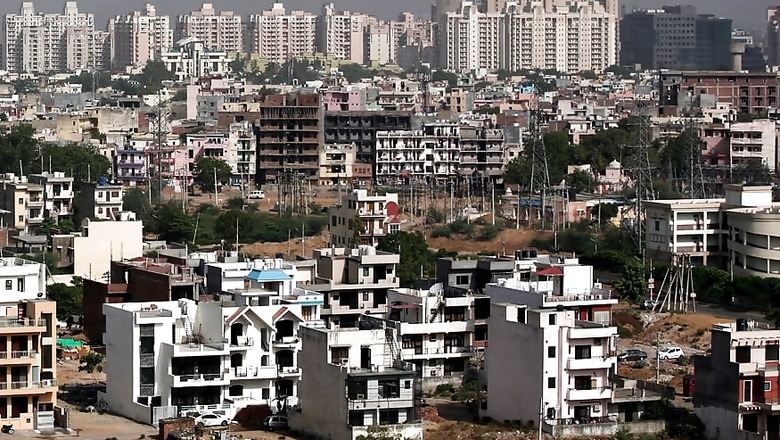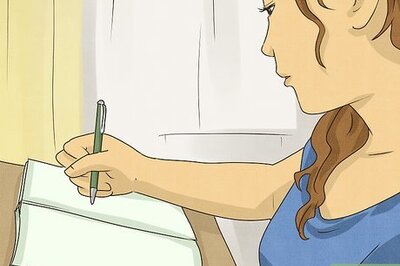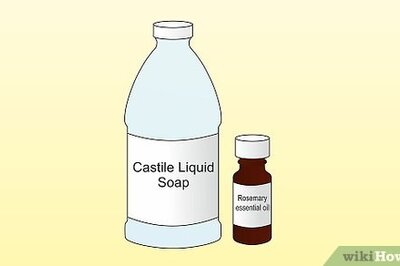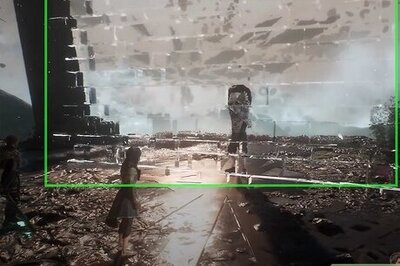
views
With the state machineries grappling with the health crisis of Covid-19, the responsibility of administering the lockdown and keeping tabs on people’s movements has been put on managing committees of Cooperative Housing Societies (CHS) and Resident Welfare Associations (RWA) across several cities in India.
There are about half a million CHS and RWAs all over India. Typically, the Societies Registration Act, 1860, mandates the formation of a managing committee which is responsible for the day-to-day administration of the housing society or a welfare association. The role, power and duties of the committee members of CHS and RWAs has been debated widely during the Covid lockdown period. This debate is slated to only get more heated, as we enter phases of relaxing lockdowns in some areas and putting additional responsibilities on these bodies in other. The government at all levels – centre, state and city – will need to communicate, discuss and get these bodies on the planning table, if it expects people to follow the rules and orders put out from time to time during Covid-19.
Let us consider two cases for understanding the issue – one from Mumbai and other from New Delhi.
In the first case, Nawab Malik, a cabinet minister from Maharashtra, made an announcement on 15 May 2020 directing committee members of CHS in a few COVID-affected wards in Mumbai to maintain a daily log of body temperature and oxygen levels of all residents and face action for non-compliance. This faced a huge pushback with societies accusing the government of shifting its responsibility on people. The Maharashtra government is yet to issue an order on this.
In Mumbai, the district collector’s office in on 26 March 2020, post the Corona pandemic, has invoked the Disaster Management Act, 2005, and given special powers to the CHS managing committees directing them to ensure residents stay indoors, use masks, get essentials and even ensure those who have travelled abroad get medical checks done. In addition, for buildings which are sealed, the government is planning to further direct these committees to ensure that the common areas are disinfected. Many district and city governments across Maharashtra, Gujarat, Goa and Bihar among others have empowered the housing society committees during the pandemic to supplement the government’s efforts by keeping a vigil in their housing colonies.
The Maharashtra Societies Welfare Association (MahaSewa) has opposed the announcement by the minister in Maharashtra, pointing out that while society office-bearers are not trained to perform such tasks, such a practice will also create higher risk of exposure to the pandemic considering they do not have the required equipment like PPE kits and medical equipment. In a letter sent to the Mumbai municipal commissioner Iqbal Chahal, the MahaSewa expressed how this could also give rise to further disputes with residents who are already resisting committee instructions on lockdown. In response, the commissioner clarified the minister’s announcement this was not a binding government order.
Similarly, in Delhi too, the state government locked horns with the RWA’s which did not have any official directions from the government, but took it upon themselves to monitor restrictions on resident movements and every activity around housing societies.
However, the rising complaints of RWA committees keeping domestic help/maids, electricians, plumbers and other essential workers from working in homes despite relaxation of restrictions by the government created friction, leading to the Delhi government issue an order in May 2020 which restricted their role.
The order said that the role played by RWA’s was ‘absolutely unacceptable’ and that ‘it is the duty of the district magistrate to ensure the economic activity commences in the NCT of Delhi as per the guidelines prescribed by the government of India and the Government of NCT of Delhi’.
Expressing their displeasure over the Delhi government’s order, the RWAs addressed a common letter to the government stating that they were a ‘vital link’ in maintaining order and services during lockdown. ”No order of the Government and various courts or, media report is without the mention of RWAs role in civic governance or espousing Public Cause. It is pertinent to mention that at no stage through the past 45 days have RWA’s been consulted, yet. RWA’s took it upon themselves to restrict movement, raise funds to supply rations to stranded migrants, coordinated to distribute food packets, took care of Senior Citizens, ensured security to residents, fed stray Animals & Birds etc,“ it said.
As the lockdown gets relaxed but with different degree of restrictions areas across the green, orange and red zones, issues like allowing domestic help/maids, drivers, how they should be checked for Covid symptoms, whether visitors should be allowed, whether common facilities like gyms, gardens should be opened in complexes, among others will come up.
As a step ahead, governments like Maharashtra have specified that in case of buildings where positive cases are found, all outsiders will be restricted from entering the building. Additionally, the committee will need to get the floor of the patient and common areas sanitised. There are no directions on how it should be done and where will the disinfectants or equipment come from.
In view of the above, there could be a plan put in place by the government, district offices and municipal corporations to work with the housing societies or RWAs for better management of Covid, for which the following recommendations could be considered:
- Create a transparent communication channel/platform where official circulars/rules/guidelines reach the housing societies and RWAs at both state/district and municipal corporation level.
- Provide financial support and subsidies to societies to make functions smoother. This need not be in the form of direct funds
- If societies are expected to sanitise buildings, check for the health of residents, equip them with the required resources to conduct those duties
- Not all residents cooperate with the CHS/RWA. Make the process participative, voluntary and not where the government will punish members for non-compliance
- There has to be more clarity on common issues like getting house help into buildings in different zones, and when to allow whom to come into the society premises. This could be clarified by the government through relevant channels, which will reduce the rifts within residents because of unclear guidelines.
While these suggestions only prescribe a roadmap that could be put in place to work better with the various CHS and RWAs, a stronger and detailed dialogue with them would mean creating a robust voluntary task force that will help build a more informed and active citizenry.




















Comments
0 comment